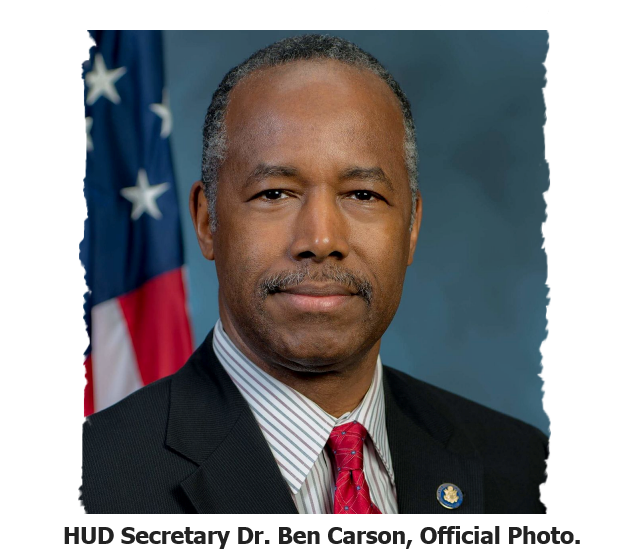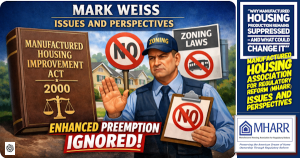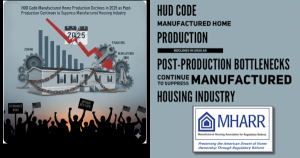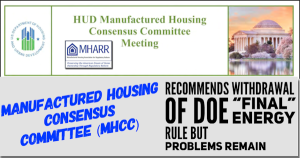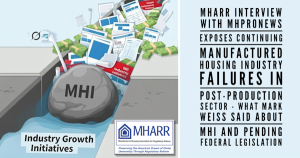[vc_row][vc_column][vc_column_text]In a notice published in the Federal Register on May 15, 2017 (copy attached), the U.S. Department of Housing and Urban Development (HUD) – pursuant to Executive Order (EO) 13771 (“Reducing Regulation and Controlling Regulatory Costs”), issued by President Trump on January 30, 2017 and Executive Order 13777 (“Enforcing the Regulatory Reform Agenda”), issued by President Trump on February 24, 2017 — has invited comments identifying existing HUD regulations that “may be outdated, ineffective, or excessively burdensome,” thereby “warranting repeal, replacement or modification” in order to “alleviate unnecessary regulatory burdens … on the American people.” In particular, and in accordance with EO 13777, HUD is seeking “input and other assistance, as permitted by law, from entities significantly affected by federal regulation, including …small businesses, consumers … and trade associations.” (Emphasis added).
The notice, which is somewhat unusual in that it was issued directly by HUD Secretary Dr. Ben Carson (and not a lower-ranking Department official), states that HUD is in the process of establishing the agency Regulatory Reform Task Force required by EO 13777, and is seeking input from affected stakeholders in order to identify regulations that, among other things: (1) eliminate jobs, or inhibit job creation; (2) are outdated, unnecessary, or ineffective; (3) impose costs that exceed benefits; (4) create a serious inconsistency or otherwise interfere with regulatory reform initiatives and policies; or (5) rely, “in whole or in part, on data, information, or methods that are not publicly available or … are insufficiently transparent to meet the standard for reproducibility.” HUD’s initiative and invitation for comment is thus similar to the invitation issued to stakeholders and the meeting conducted by the Environmental Protection Agency (EPA) on May 1, 2017, with respect to possible changes to existing regulations, including the EPA “Formaldehyde Emissions from Composite Wood Products” final rule. (MHARR filed comments in the EPA docket on May 15, 2017, which it will soon be sharing with industry members).
As MHARR stressed immediately after EO 13777 was issued, the President’s regulatory reform initiatives “offer, potentially, a once-in-a-lifetime opportunity for the industry and consumers to put a severely out-of-touch and out-of-control federal program back on track.” (See, February 28, 2017 MHARR News Release: “President Trump’s Actions Offer Major Opportunity for MH Industry and Consumers”). For those in the industry who still downplay the possibility of regulatory reform at HUD and continue to believe that the intolerable status quo within the manufactured housing program is somehow good enough – or inevitable — this follow-through on the President’s regulatory initiatives by the HUD Secretary should be a call to action to move quickly and decisively for serious changes to the HUD program, to bring it into full compliance with the 2000 reform law and to conform the program to the reality of the manufactured housing industry today – where outstanding homes, outstanding quality and outstanding value have resulted in unprecedented customer satisfaction and minimal levels of consumer complaints.
That said, within the HUD manufactured housing program, there is no shortage of regulations — and an entire universe ofde facto regulatory mandates, including interpretations, policies, practices, “guidance” documents, “checklists,” “standard operating procedures,” and other requirements imposed on industry members by fiat (by career regulators and associated contractors who have been in place since the inception of federal regulation over 40-years ago) – that not only violate the procedural requirements of the Manufactured Housing Improvement Act of 2000, but also impose “unnecessary regulatory burdens” on both the industry and American consumers of affordable housing. As many industry members, and particularly manufacturers are aware, these unnecessary “make-work” mandates — which primarily benefit revenue-driven HUD contractors while doing little or nothing for actual homebuyers — have proliferated, expanded and worsened over the past three years that Pamela Danner has been the HUD program administrator.[/vc_column_text][/vc_column][/vc_row]

